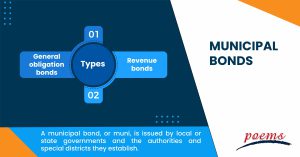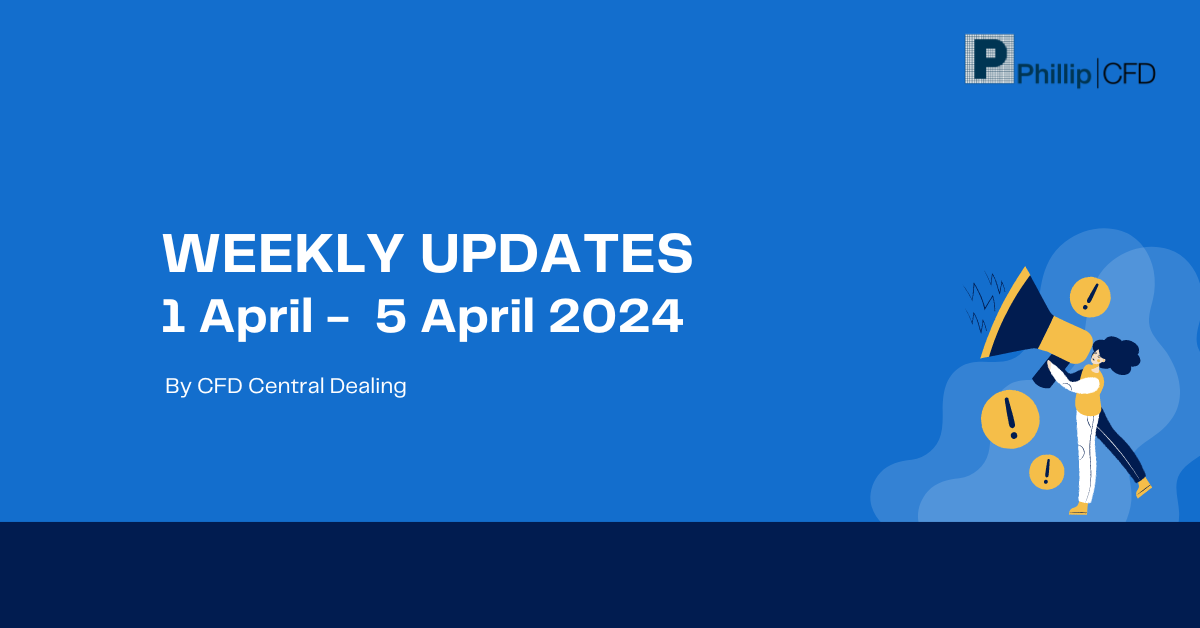Municipal bonds
Table of Contents
Municipal bonds
You must have encountered several debt investing programs while considering different ways to diversify your investment portfolio. Municipal bonds are an excellent choice if you’re considering investing in a debt investment product with low risk and guaranteed returns. A bond or fixed-income security issued by a municipality, township, or state to fund its governmental undertakings is a municipal bond.
What is a municipal bond?
A municipal bond, or muni, is issued by local or state governments and the authorities and special districts they establish. Holders of municipal bonds are frequently, but only sometimes, free from paying federal and state income taxes on the interest they receive. Tax-exempt municipal bonds are typically preferable to taxable ones for investors in the highest tax brackets. Calculations of the taxable equivalent yield are necessary to compare the two categories fairly.
Understanding municipal bonds
Interest on municipal bonds is not taxed on the federal level. You might not have to pay local and state taxes on municipal bonds issued in your form. When examining the rates on municipal bonds, it’s critical to remember this. It would help if you considered the taxable-equivalent yield to compare rates on taxable bonds with tax-free municipal bonds appropriately.
Municipal bonds are rated according to their credit ratings before being sold to the general public, making them a safe investment choice for people looking to reduce the risk component in their investment portfolio. Additionally, compared to other debt instruments, these bonds have higher interest rates. Investors looking for capital growth may want to consider buying these bonds. These bonds do, however, change in response to changes in interest rates.
Types of municipal bonds

The following are the types of municipal bonds:
- General obligation bonds
Governmental organisations can issue general obligation (GO) bonds not supported by money from a particular undertaking, such as a toll road. Dedicated property taxes are collateral for some GO bonds, while general revenues are used for others.
- Revenue bonds
Principal and interest payments on a revenue bond are guaranteed by the issuer or by taxes on things like sales, petrol, hotel occupancy, or other fees. When a municipality issues bonds through a conduit, a different party pays the interest and principal.
Benefits of municipal bonds
Municipal bonds often have a minimal default risk due to their backing by governmental bodies. Federal income taxes are typically not applied to the interest you earn. There’s a significant possibility you can avoid state income taxes if you purchase bonds from a company in your home state.
Retirement investors frequently favour municipal bonds to generate a consistent income from their holdings. It’s critical to thoroughly research the bonds offered, their availability, and their precise terms because every municipal bond is unique. To be sure you understand what you’re getting into, you should speak with a broker or investment advisor.
Some municipal bonds are deemed illiquid, so selling them would be difficult if you need rapid cash. If you choose to invest, other options exist besides purchasing individual bonds. Additionally, ETFs and mutual funds only invest in municipal bonds.
Municipal bond risks
The following are the various types of municipal bond risks:
- Credit risk
It implies that there is a chance that the bond issuers won’t be able to pay the whole principal and interest due (also known as the default risk). Several bonds also have credit ratings that can be used to estimate their relative credit risk from other bonds. High ratings do not, however, indicate a risk of default.
- Inflation risk
The declining purchasing power caused by the rising price shift leads to an increase in interest rates. As a result, investors are undoubtedly in danger of losing out on a predetermined interest rate if the market value of current bonds declines.
- Call risk
Call risk, typically when interest rates decline, shows the bond issuer’s capacity to repay before maturity. Please be aware that different Muni bonds are “callable.” Therefore, investors wanting to retain a bond until it matures must review its call conditions before purchasing.
- Interest rate risk
Municipal bond investors receive the fixed face value and the fixed interest payment if held until maturity. Furthermore, municipal bond costs rise as interest rates fall and vice versa. It guarantees that the bond’s market value may be greater or lower than its face value. Investors with common fixed-rate bonds are not allowed to sell them before the bonds’ maturity date if the US interest rates, which are now lower, rise. Otherwise, they risk suffering financial loss due to their lower market value.
- Liquidity risk
It means that investors need help to recognise a vibrant municipal bond market. It prevents them from trading anytime they would like and from getting a specific rate. Many investors buy these bonds to hang onto rather than sell them. As a result, the market for a particular bond may be relatively low, and its quoted rates may change.
Frequently Asked Questions
The advantages of purchasing municipal bonds are:
- Credit rating organisations like CRISIL rate these bonds. Investors now have transparency regarding their credibility, thanks to this.
- These bonds are issued by municipal administrations, which suggests a low risk associated with these assets.
The disadvantages of purchasing municipal bonds are:
- Investors must deal with the liquidity difficulty because of the three-year lock-in term for these bonds. However, selling them early on the secondary market may be challenging if an unpopular municipal corporation issues them. As a result, their reliability and ability to produce are under doubt.
- Returns on these bonds are less than those of market-linked securities.
Municipal bonds are typically only issued in US$ 5,000 increments. Some exchange-traded funds (ETFs) and mutual funds may include municipal bonds, enabling investors to buy bond fractions.
Municipal bonds come with a range of terms, from two to thirty years.
Changes in interest rates and interest rate forecasts are often the main factors influencing municipal bond prices on the secondary market. As interest rates fall, newly issued bonds will pay a lower yield than current issues, making the older bonds more appealing.
Related Terms
- Notional amount
- Negative convexity
- Jumbo pools
- Inverse floater
- Forward Swap
- Underwriting risk
- Reinvestment risk
- Final Maturity Date
- Bullet Bonds
- Constant prepayment rate
- Covenants
- Companion tranche
- Savings bond calculator
- Variable-Interest Bonds
- Warrant Bonds
- Notional amount
- Negative convexity
- Jumbo pools
- Inverse floater
- Forward Swap
- Underwriting risk
- Reinvestment risk
- Final Maturity Date
- Bullet Bonds
- Constant prepayment rate
- Covenants
- Companion tranche
- Savings bond calculator
- Variable-Interest Bonds
- Warrant Bonds
- Eurobonds
- Emerging Market Bonds
- Serial bonds
- Equivalent Taxable Yield
- Equivalent Bond Yield
- Performance bond
- Death-Backed Bonds
- Joint bond
- Obligation bond
- Bond year
- Overhanging bonds
- Bond swap
- Concession bonds
- Adjustable-rate mortgage
- Bondholder
- Yen bond
- Liberty bonds
- Premium bond
- Gold bond
- Reset bonds
- Refunded bond
- Additional bonds test
- Corporate bonds
- Coupon payments
- Authority bond
- Clean price
- Secured bonds
- Revenue bonds
- Perpetual bonds
- Quote-Driven Market
- Debenture
- Fixed-rate bond
- Zero-coupon bond
- Convexity
- Compounding
- Parallel bonds
- Junk bonds
- Green bonds
- Average maturity
- Investment grade bonds
- Convertible Bonds
Most Popular Terms
Other Terms
- Physical ETF
- Initial Public Offering
- Buyback
- Secondary Sharing
- Bookrunner
- Payment Date
- Secondary Market
- Margin Requirement
- Mark-to-market
- Pledged Asset
- Yield Pickup
- Subordinated Debt
- Trailing Stops
- Treasury Stock Method
- Stochastic Oscillator
- Basket Trade
- Contrarian Strategy
- Exchange Control
- Notional Value
- Relevant Cost
- Dow Theory
- Speculation
- Stub
- Trading Volume
- Going Long
- Pink sheet stocks
- Rand cost averaging
- Sustainable investment
- Stop-limit sell order
- Economic Bubble
- Ask Price
- Stock symbol
- Synthetic replication
- Bourse
- Beneficiary
- Witching Hour
- Widow and Orphan stock
- Public Float
- Closing Price
- Reverse stock splits
- Quiet period
- Prepayment risk
- Interpolation
- Homemade leverage
- Hyperdeflation
- Hope Credit
- Prime bank investments
- Purchasing power
- Futures contracts
- ESG
Know More about
Tools/Educational Resources
Markets Offered by POEMS
Read the Latest Market Journal

Back in Business: The Return of IPOs & Top Traded Counters in March 2024
Start trading on POEMS! Open a free account here! At a glance: Major indices continue...

Weekly Updates 15/4/24 – 19/4/24
This weekly update is designed to help you stay informed and relate economic and company...

From $50 to $100: Unveiling the Impact of Inflation
In recent years, inflation has become a hot topic, evoking strong emotions as the cost...

Japan’s Economic Resurgence: Unveiling the Tailwinds Behind Nikkei 225’s Record Leap
Source: eSignal, Intercontinental Exchange, Inc. In the heart of Japan’s economic landscape, the Nikkei 225...

Weekly Updates 8/4/24 – 12/4/24
This weekly update is designed to help you stay informed and relate economic and...

What Makes Forex Trading Attractive?
In a world where the click of a button can send goods across oceans and...

Weekly Updates 1/4/24 – 5/4/24
This weekly update is designed to help you stay informed and relate economic and company...

How to soar higher with Positive Carry!
As US Fed interest rates are predicted to rise 6 times this year, it’s best...












